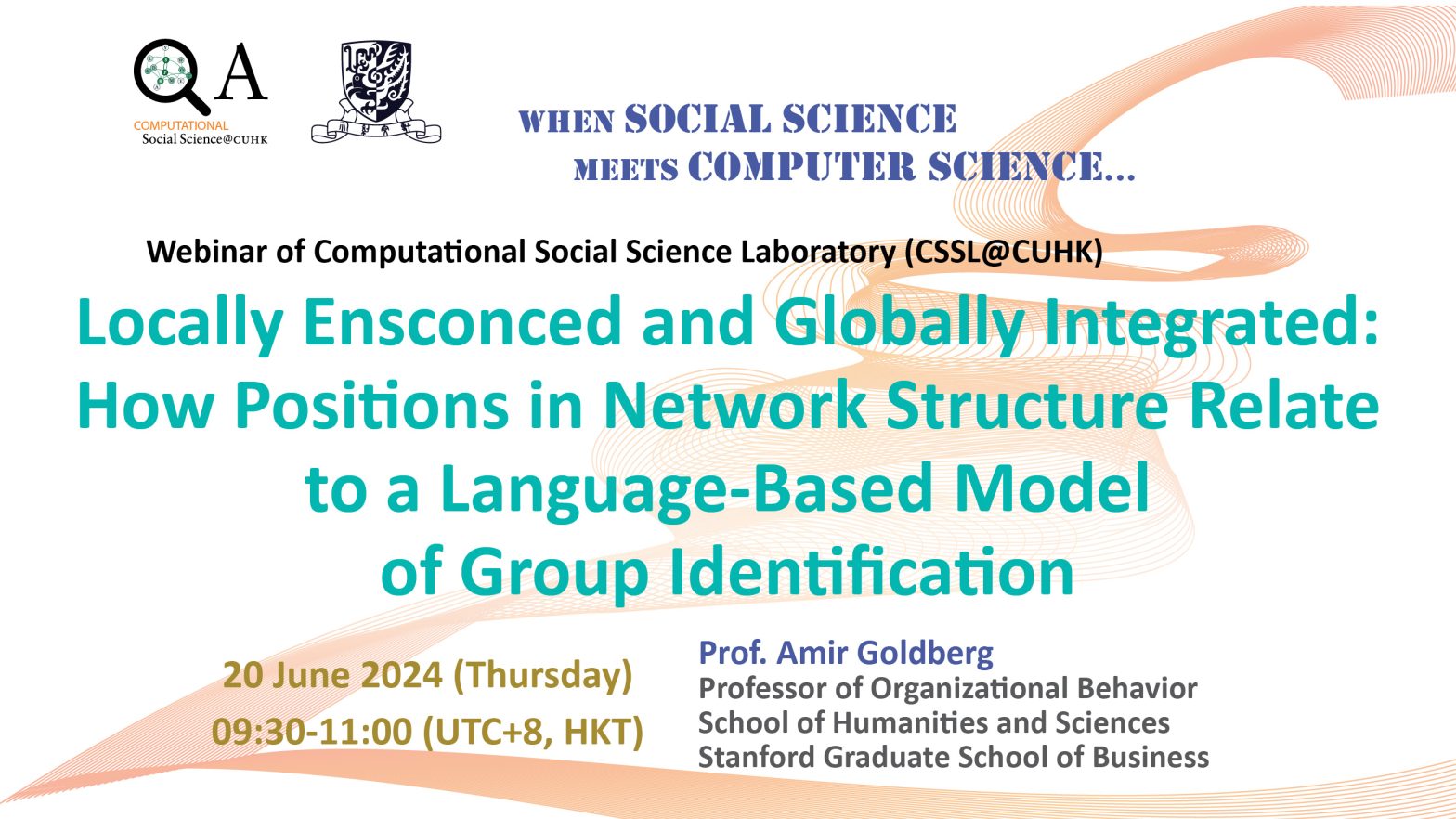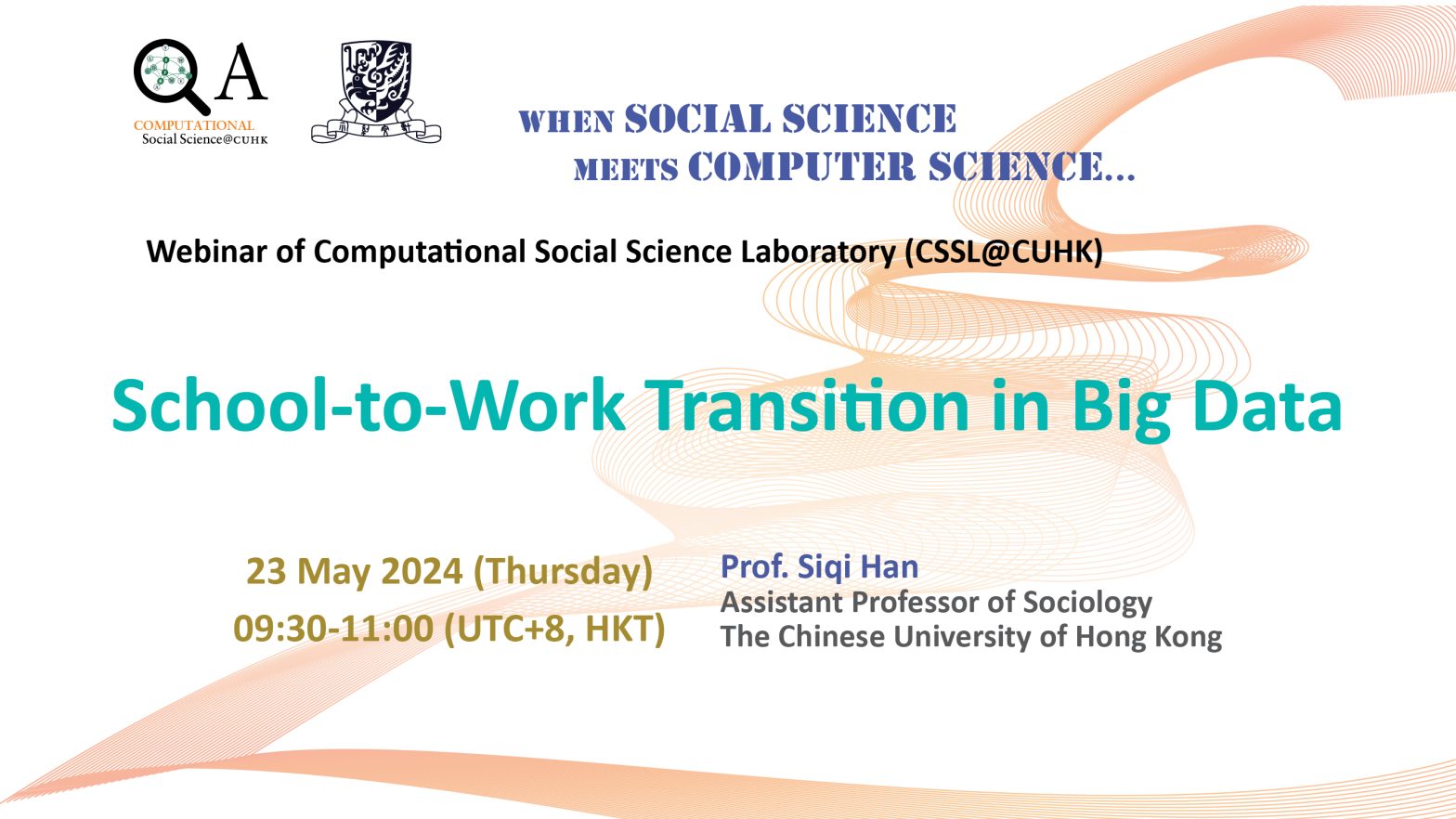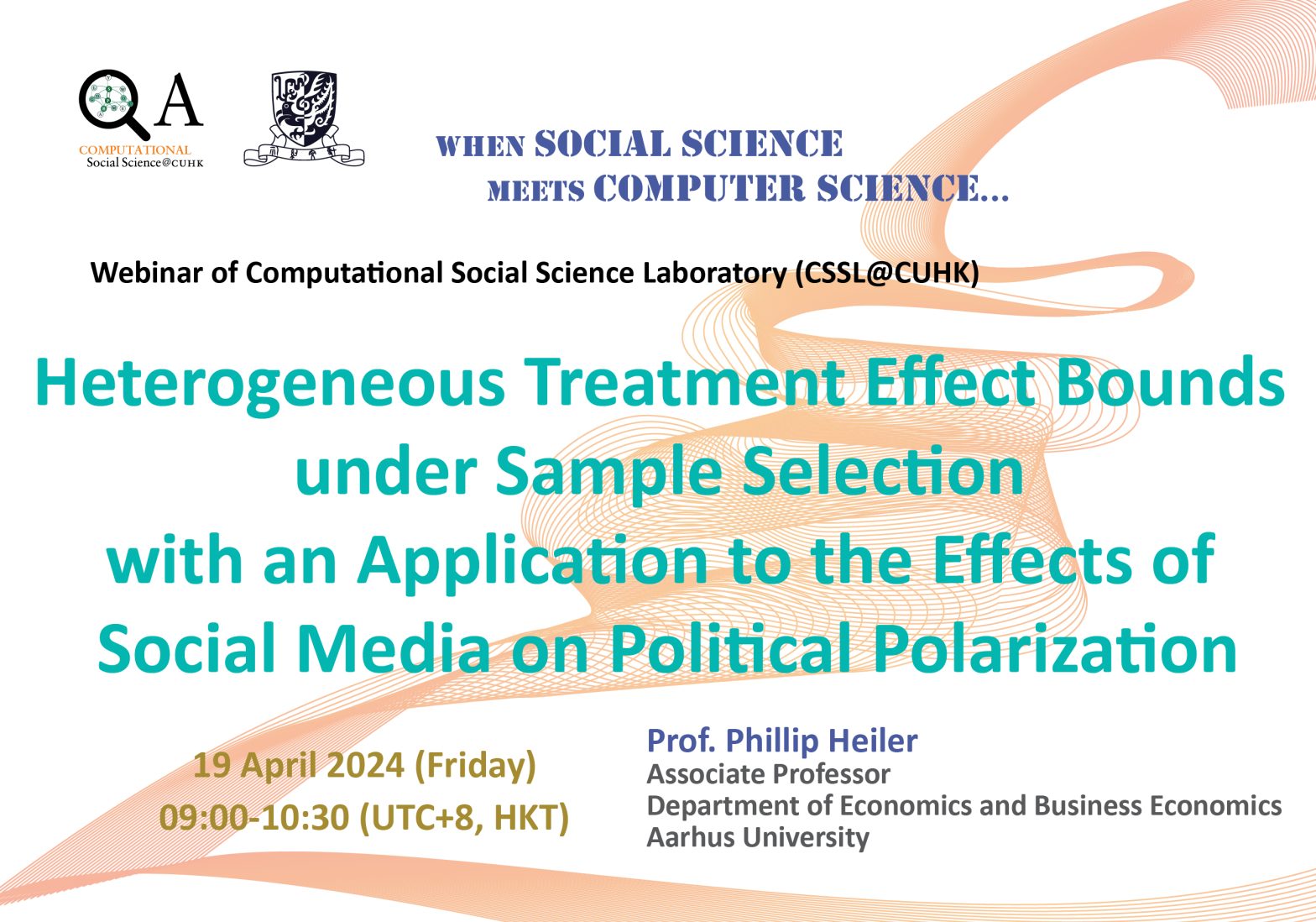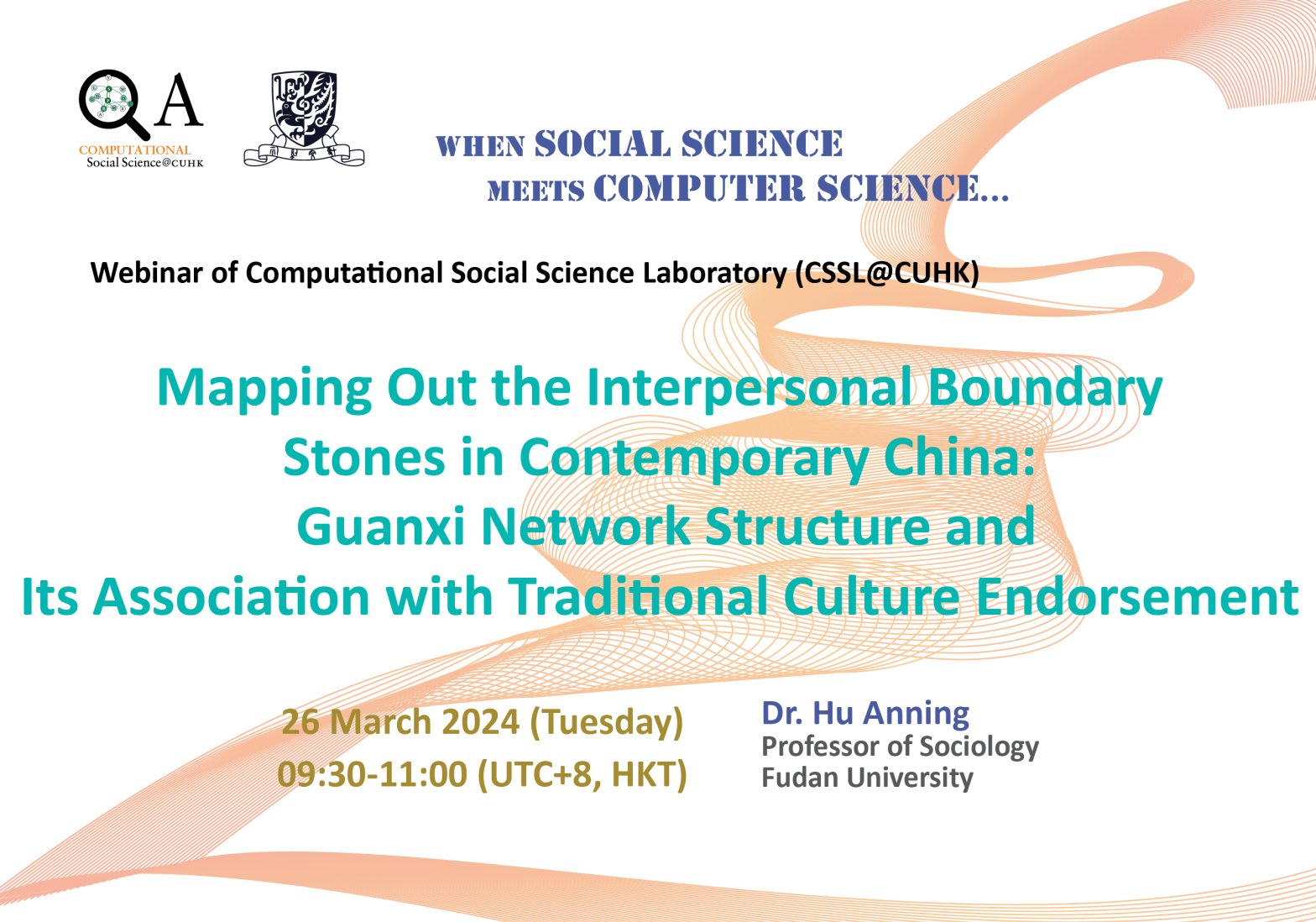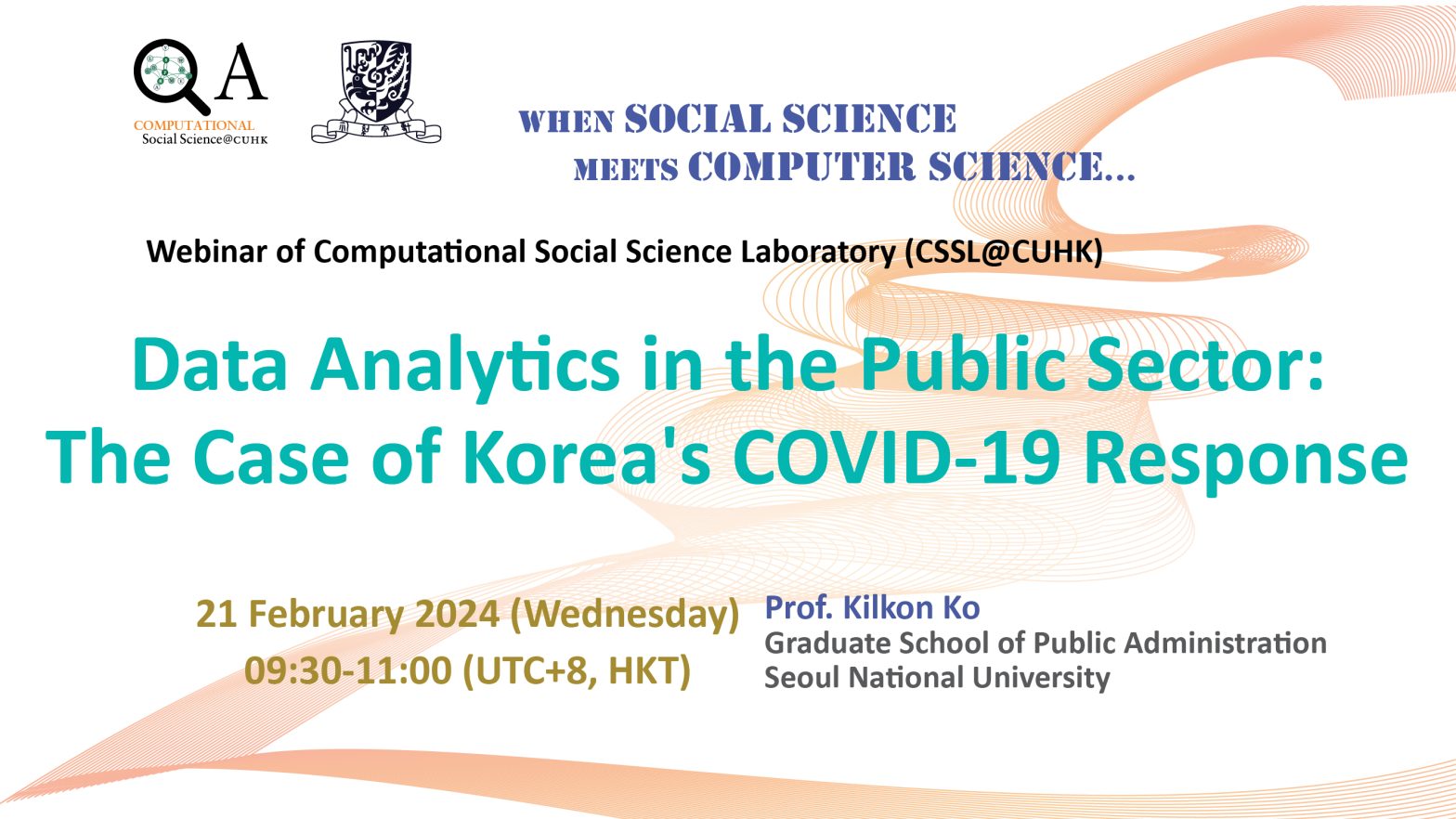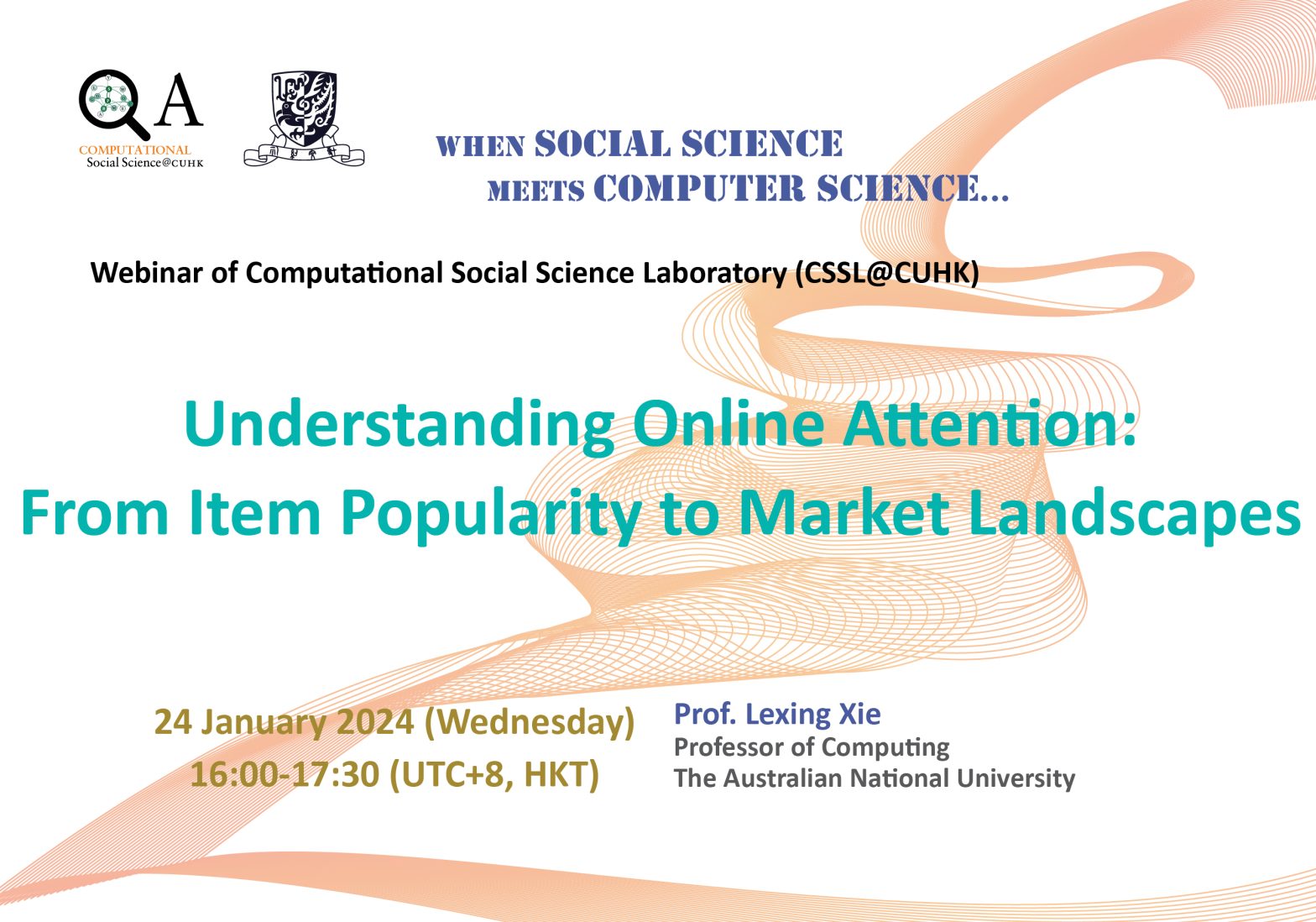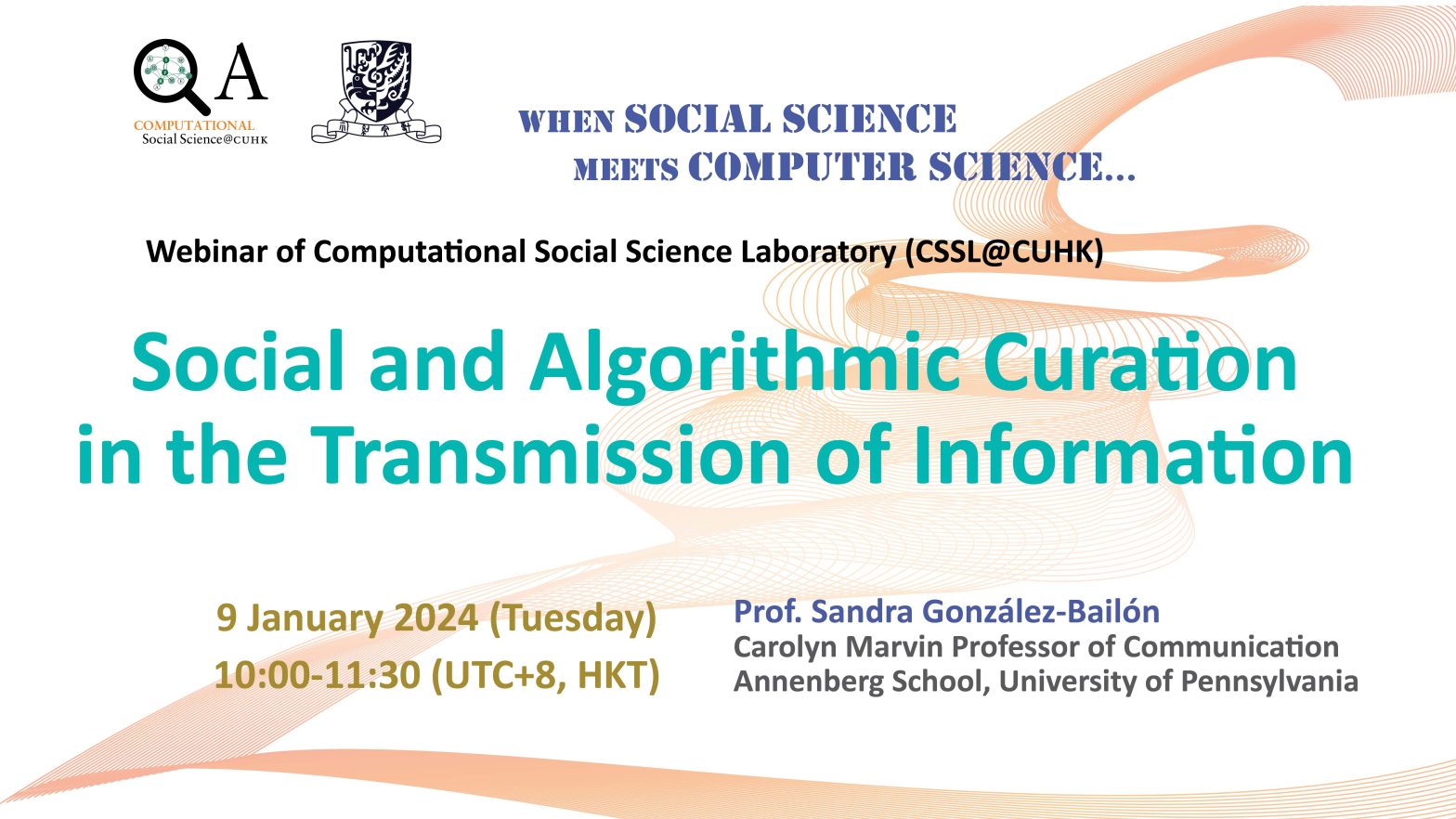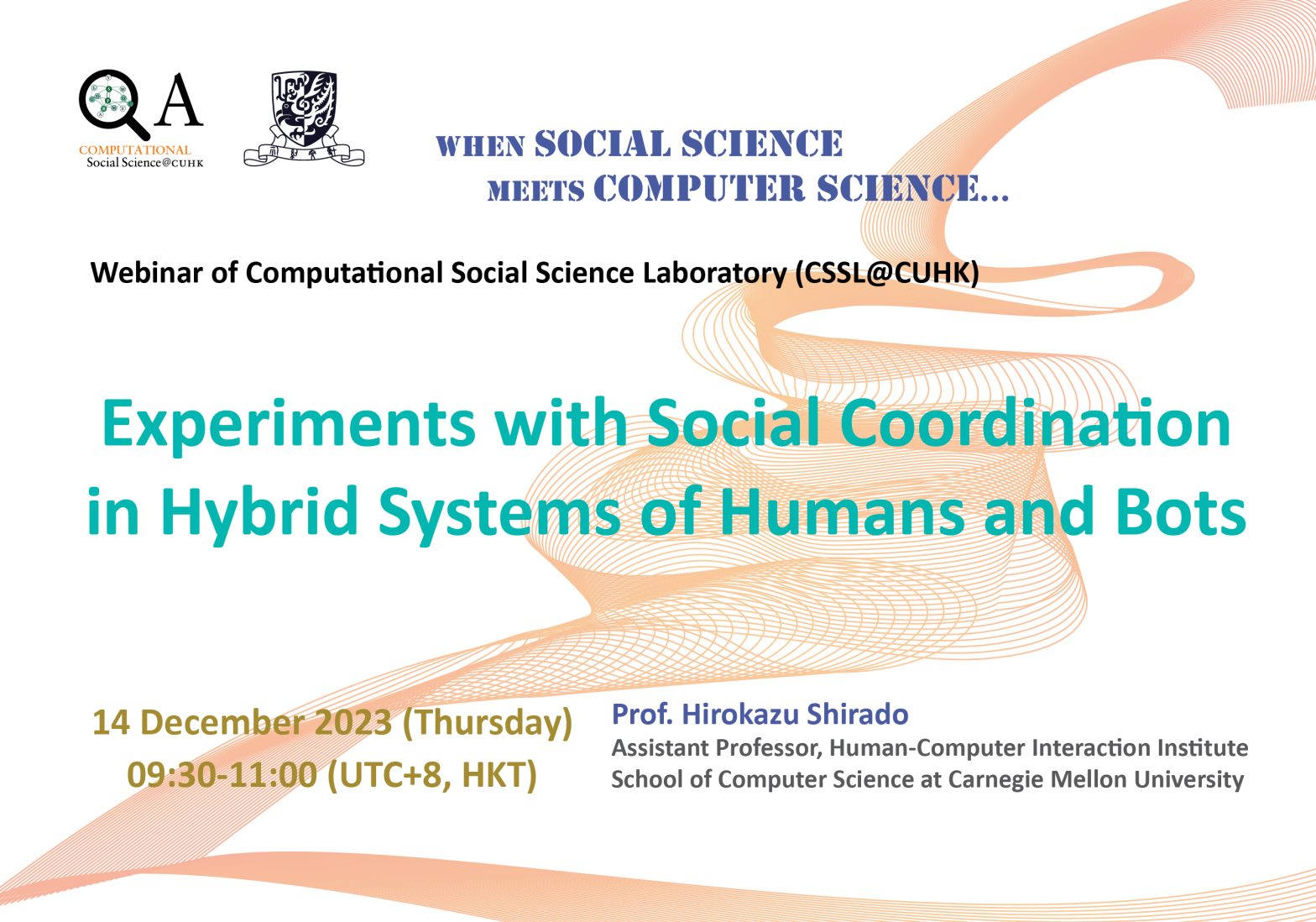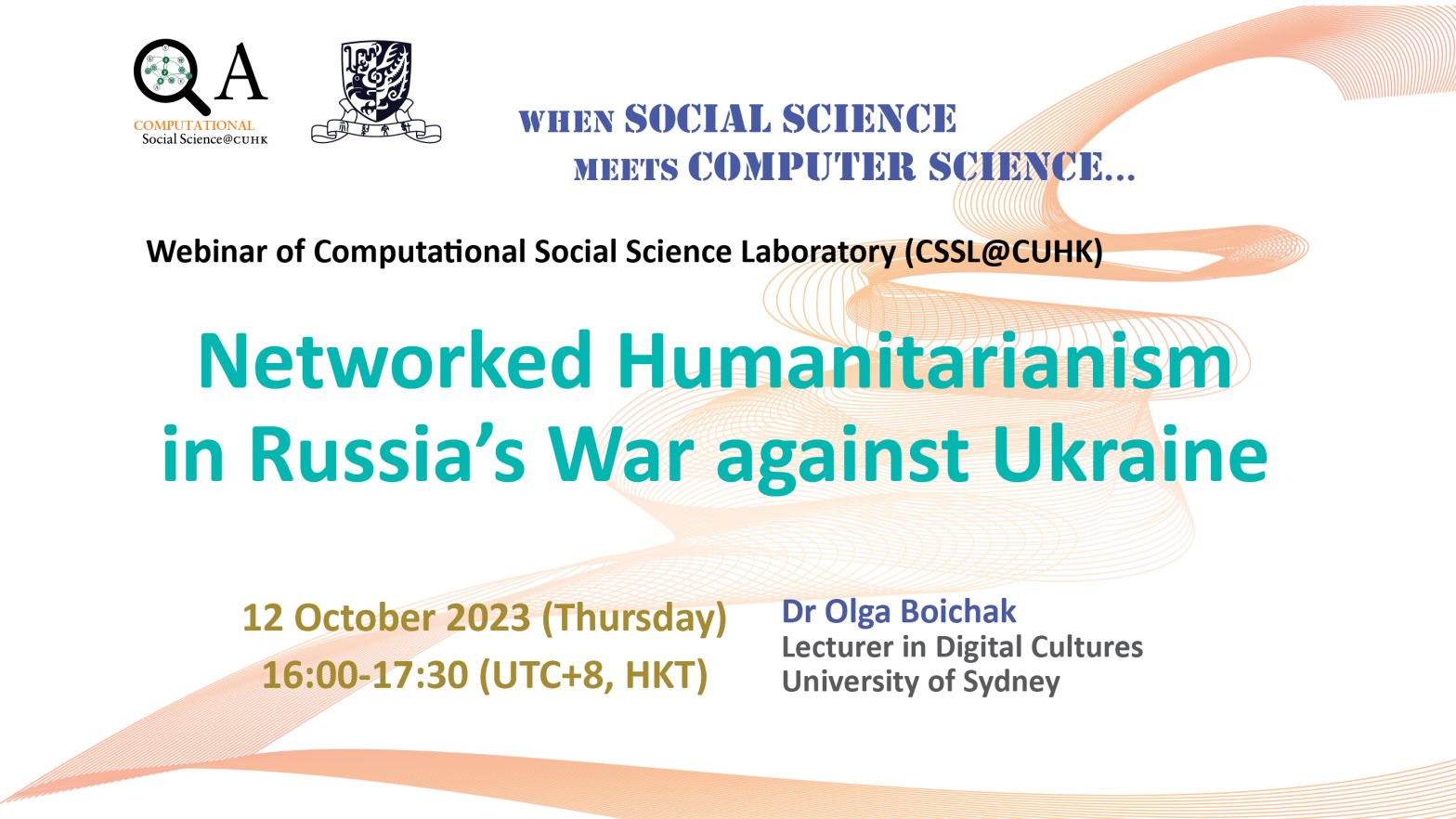Abstract: Digital technologies have brought about a significant shift in the way people from different social groups participate in politics through increased information openness. However, the effects of information openness on the equality of participation remains controversial. In this paper, we argue that in developing countries, information openness empowers disadvantaged groups by reducing the cost… Continue reading Byte the Power: Information Openness Increases Participatory Equality in China
Author: Editor
Locally Ensconced and Globally Integrated: How Positions in Network Structure Relate to a Language-Based Model of Group Identification
Abstract: Shifting attachments to social groups are a constant in the modern era. What accountsfor variation in the strength of group identification? Whereas prior work has emphasizedgroup-level properties and individual differences, we instead highlight the role ofpositions within network structure. Distilling insights from prior work on networks andidentity, we propose that identification strength is positively… Continue reading Locally Ensconced and Globally Integrated: How Positions in Network Structure Relate to a Language-Based Model of Group Identification
School-to-Work Transition in Big Data
Abstract: Professor Han will present a series of her published and ongoing works that provide an overview of how unstructured big textual data can be collected and analyzed using computational social science methods in the research area of social stratification, specifically in the study of school-to-work transition. She will compare these new approaches to classical… Continue reading School-to-Work Transition in Big Data
Heterogeneous Treatment Effect Bounds under Sample Selection with an Application to the Effects of Social Media on Political Polarization
Abstract: We propose a method for estimation and inference for bounds for heterogeneous causal effect parameters in general sample selection models where the treatment can affect whether an outcome is observed and no exclusion restrictions are available. The method provides conditional effect bounds as functions of policy relevant pre-treatment variables. It allows for conducting valid… Continue reading Heterogeneous Treatment Effect Bounds under Sample Selection with an Application to the Effects of Social Media on Political Polarization
Mapping Out the Interpersonal Boundary Stones in Contemporary China: Guanxi Network Structure and Its Association with Traditional Culture Endorsement
Abstract: Guanxi research would benefit from an empirical portrayal of holistic guanxi network structures and consideration of sociologically meaningful antecedents such as one’s cultural value endorsement. This study, drawing on the reported trustworthiness of a rich array of referees in one’s guanxi network collected from the Traditional Culture and Cognitive Pattern Survey, identifies two types… Continue reading Mapping Out the Interpersonal Boundary Stones in Contemporary China: Guanxi Network Structure and Its Association with Traditional Culture Endorsement
Data Analytics in the Public Sector: The Case of Korea’s COVID-19 Response
Abstract: The COVID-19 pandemic has been a global disaster with significant impacts. In response to it, an unprecedented amount of data was generated. This data has been utilized in various ways for research and policymaking. In this webinar, Professor Ko will examine the significance of data quality from the perspective of data analytics and explores… Continue reading Data Analytics in the Public Sector: The Case of Korea’s COVID-19 Response
Understanding Online Attention: from Item Popularity to Market Landscapes
Abstract: What makes a video popular, what drives collective attention online, what are the commonalities and differences between clicks and transactions in a market? This talk aims to answer these three questions. I will first discuss a physics-inspired stochastic time series model that explains and forecasts the seemingly unpredictable volumes of views over time. This… Continue reading Understanding Online Attention: from Item Popularity to Market Landscapes
Social and Algorithmic Curation in the Transmission of Information
Abstract: The diffusion of information requires prior exposure: we cannot disseminate what we do not see. In online platforms, information exposure results from a complex interaction between social and algorithmic forms of curation that shapes what users see in their feeds. In this talk, I will discuss research using social media data that investigates the… Continue reading Social and Algorithmic Curation in the Transmission of Information
Experiments with Social Coordination in Hybrid Systems of Humans and Bots
Abstract: In this talk, I will introduce my online experiments aimed at examining how people coordinate with each other in the presence of machine intelligence. I will begin by discussing the findings published by Nature in 2017, which involved the injection of bots into experimental networks where people (N = 4000 in total) were playing… Continue reading Experiments with Social Coordination in Hybrid Systems of Humans and Bots
Networked Humanitarianism in Russia’s War against Ukraine
Abstract: Social media have reconfigured the international relief landscape by opening discursive spaces for grassroots storytelling and activism. Bringing the images of distant suffering closer than ever before and affording an array of opportunities for framing, representing, and responding to crisis events, platforms have shifted the relationship between information and capacity for action. This shift… Continue reading Networked Humanitarianism in Russia’s War against Ukraine


